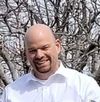Dealing with death
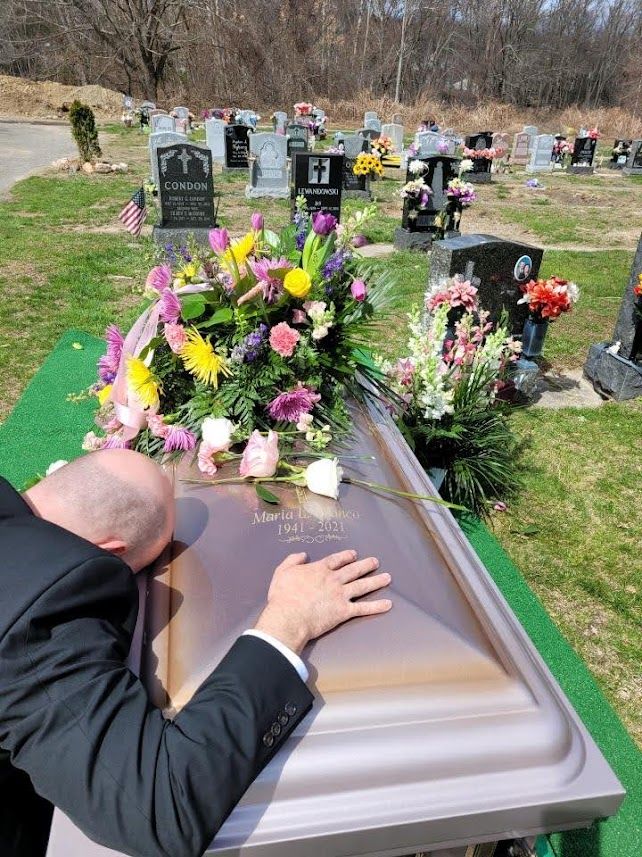
It has been a difficult weekend for Boston sports fans. The Patriots got drubbed by the Cowboys, 38-3, and the Red Sox disappointing season came to a merciful end. But that is just sports. In the grand scheme of things, who cares? Life is all about perspective.
Last week, the news was leaked out on social media by the moron, Curt Schilling, that his former teammate Tim Wakefield was battling brain cancer and was not doing well. Schilling did not have permission from the team or, more importantly, the family to disclose that information. On Sunday, we learned that Wakefield had passed away at the age of 57.
Shortly thereafter, news broke that former Patriots star tight end, Russ Francis, died in a plane crash in Lake Placid, New York. He was a youthful 70 years old.
I am about four months away from turning 52. I am getting to that age that I begin seeing a lot more people die around my same age. I handled death better when I was younger, when my whole life lay ahead of me.
I didn’t see death firsthand until I was, probably, 18 years old and I attended the wake of the grandfather of one of my schoolmates. My high school friend and I used to shoot pool in the basement of his grandfather’s house fairly regularly, so I knew the grandfather well. I don't remember his grandfather's face, but I remember the feeling of thinking, "Wow. This is a dead person. And it smells funny in here."
I didn’t have to confront death again until I was 30. My family had been blessed with good health and longevity, so it wasn’t until the year 2000 that my first close family member passed away. I remember I was sleeping in my room in the basement of my parent’s house when my father turned on the light and said, “Uncle Jack died today.” He then turned off the light and left me alone in the dark. My uncle had been in poor health, but there was little reason to think his death was imminent.
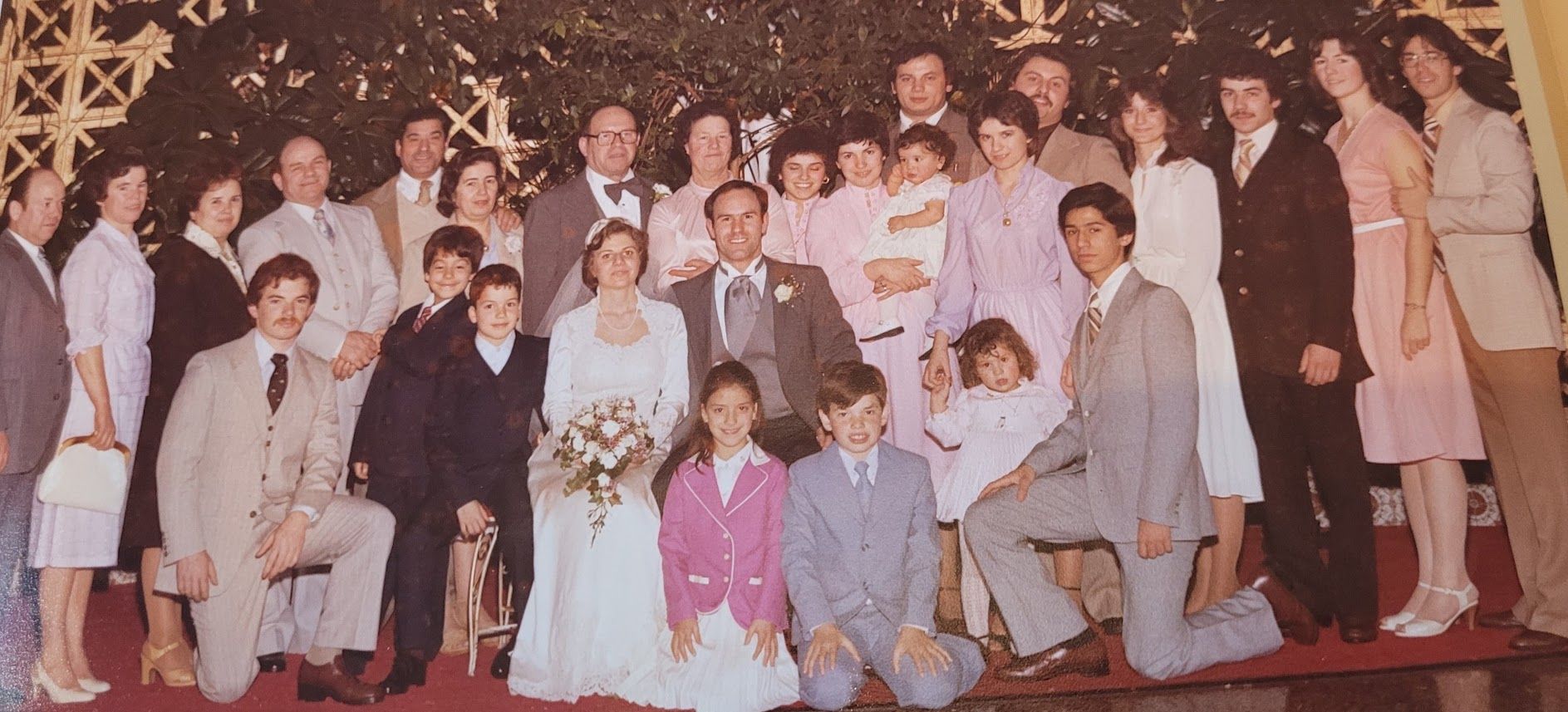
But, even still, I handled it well. My uncle was the most “American” of all my uncles and aunts. He was the first one to come to the United States from Portugal. One by one, he “called” his brothers and sisters to the United States. To this day, I don’t really understand how the immigration process worked, but I think an immigrant could only “call,” or bring over, one family member to the United States every year. The point was my Uncle Jack was the first to come over. I am thankful every day for the courage that must have taken. He spoke the best English out of all my uncles and aunts, and he was the only one of them who shared my love for sports. He would take me as a kid to see high school football and baseball games and, on real special occasions, take me to McCoy Stadium to watch the PawSox, the minor league affiliate of the Boston Red Sox. They were, and still are, very fond memories and some of the earliest memories I have.
It would be over another ten years before another close family member would pass away. This would be the first time I would actually be witness to a human being dying. I was 38. My Uncle Tony was on his “deathbed.” Uncle Tony was the best at giving me life advice, very often unsolicited. Good thing I didn't listen to him and marry the girlfriends he told me I should. He was a kind soul, but here we were gathered around his bed waiting for him to breathe his last. The TV had some religious program, alternating between singing hymns and praying, playing on a loop. I took mental note of which relatives were more affected by what we were witnessing. I stood by the bedside just wondering which breath would be my uncle’s last.
Over the course of the next few months, it was time for my family to pay the piper. Many of my relatives were fortunate to have lived long lives, but now I was becoming numb, and almost accustomed to the flurry of funerals I had to attend.
But there were three funerals around this time that really screwed with my head. They screwed with my head because they were not elderly people who had lived long, rich lives. These three were my contemporaries. I was now approaching 40 years old, and within one year, I would lose my best friend for most of my adult life, and two cousins - all were 42 years old when they died. The really sad part was the two cousins were brothers, and my best friend had been married to their sister. Imagine the heartache of that family - the surviving sisters and parents. It is impossible to imagine. I wouldn’t want to imagine. But they have all persevered and are still alive to this day… and sane, somehow.
My best friend died in a single car accident in Dallas, Texas. He was the only one in the car. Now I call him my best friend, but with a hint of guilt, because Charlie and I lost touch for probably the last five years of his life after he and my cousin divorced. I got the phone call while I was attending a bridal shower, or something fancy like that, of someone I didn’t know. I broke down and cried in the parking lot, feeling enormous guilt for having lost touch with him.
I felt better, but then worse, when Charlie’s father introduced me at the cemetery to Charlie's girlfriend at the time of his death, and told her that Charlie and I were “as close as brothers.” She had no reaction, probably wondering why Charlie had never spoken of me.
Only a week later, I got the call that my cousin, Carlos, had died. He had brain cancer so it was kind of expected, but coming right on the heels of Charlie’s unexpected death was a punch to the gut. He was a big strong guy and he was damn good looking. He had no problem getting women. I do remember his sister telling me at the wake, though, that he confided to her in his final days that his biggest regret was not getting married and having kids.
Less than a year later, I got the call that his brother, Jorge, was found dead in his bed. I never found out how he died, but I knew Jorge liked to party, and that he and his brother had been very close.
I wouldn’t pretend to say we were all very close, but we did go through a time period where the four of us would meet up and take late night drives to the casino and gamble until the wee hours of the morning. My favorite part was the drives. We’d crank the music up. It was usually classic rock music like AC/DC, Van Halen, or Ozzy and we’d sing loudly until our voices were hoarse.
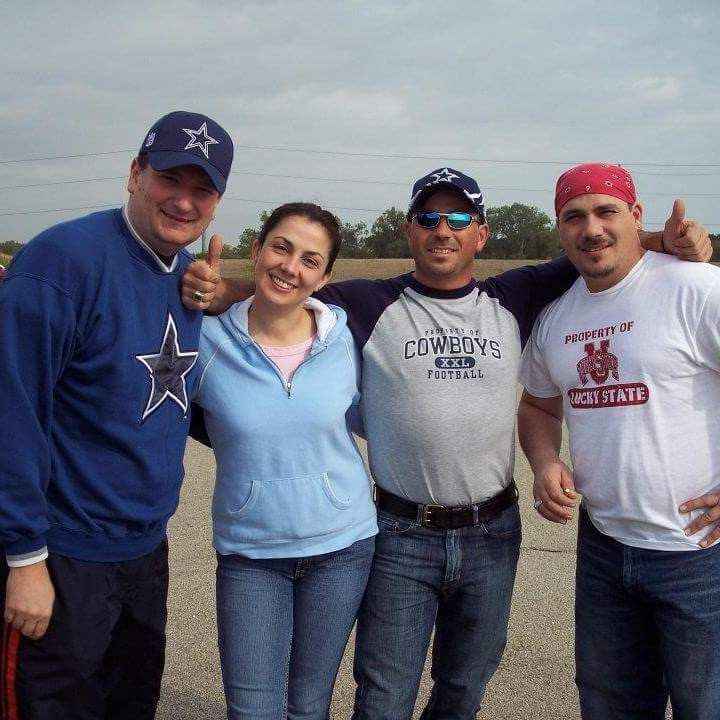
That was the first time I’d seen anyone my age or younger in a casket. Charlie was cremated, so that was a different experience as well. I remember his father at the wake motioning to the urn and saying this just wasn’t right. But seeing Carlos and Jorge was surreal. They had so much more to live. They should still be here. Who knows what kind of experiences they could have had in the past decade since they died? Maybe Carlos would have gotten married and had those kids. Maybe we would all still be going to the casino, albeit far less regularly.
Those were difficult days for me. It was really only the second time I had come face to face with my own mortality. The first time was when I was diagnosed with melanoma when I was about 32. Those excision wounds eventually heal and I would be ruled cancer-free. The spiritual wounds of losing my three travelling buddies in rapid succession still exist. I sank into “a funk” for a while after that. I didn’t really know what depression meant at the time.
My age 42 year was tough, because that is how old the three of them had all been when they died. They were all a little older than me. We had been extremely close for a time. Was I meant to die when I was 42, too? You can imagine how happy I was when I celebrated my 43rd birthday.
There were a couple more funerals in the following years. I was fortunate to be the last of my cousins to still have both my parents alive at the end of the decade. Alas, my mother got Lewy Body Dementia and her condition quickly deteriorated. I was only able to visit her three brief times in her last year alive, due to nursing home visitation restrictions due to COVID. She died on March 30, 2021. I was the only one with her to the very end, and I held her hand as she breathed (gurgled) her last breath.
I am sure I surprised people by how well I handled myself at the wake and the funeral. I took it upon myself to monitor the camera so my mother’s relatives in Canada and Portugal could watch online and feel a part of the ceremony. I gave a eulogy at the church ceremony. My voice never once cracked or wavered.
I only missed a week of work and returned the following Monday. My mother had died the previous Monday. After an hour of people giving me their condolences at work, I couldn’t handle it. I know they meant well, but I didn’t want to be reminded of my mother being dead every five seconds. I called my supervisor and told him I needed to go home. I needed more time to grieve. I wasn't ready to return to work. One of the young owners of the company called me to set up a meeting the following day. When we met, he asked if I were to be granted another week off, if I’d “be 100%” on the following Monday and ready to go full speed. It took everything in me not to punch him in the face. Two years later and I am still nowhere close to 100%. It was an indication of how toxic the work environment would be for me.
But I did resume my normal life the next Monday. And I was going good until my work life began to struggle at the end of that summer, about six months after my mother's passing. COVID presented companies with unprecedented problems - among them labor and supply shortages. I was working longer hours, and I worked long hours to begin with. In August, I lost most of my top managers to other jobs. Ownership offered no help. They told me all the other restaurants were in the same boat and to deal with it.
Around this time, the 102-year old grandmother of my partner, Erin, passed away. What a woman she was! She was only a few weeks shy of her 103rd birthday and she was mentally sharp as a tack until the very end. Erin and I would visit her every Saturday afternoon and have coffee and cake. Her coffee always had grounds floating in it, but that became part of the experience. We wouldn't dare say anything. Sometimes, the three of us would sit around the kitchen table and play bingo. She loved bingo.
I was a pallbearer at her funeral. I was honored. However, something stirred up inside of me at the wake. Maybe it was that Erin’s grandmother had replaced the real mother figure I had lost. And now she was gone too. I remember I had to leave the wake twice to get some fresh air. I may have even taken a drive either or both times. Losing my mother, and now Erin’s grandmother, was hitting me like a ton of bricks. I didn't have that comforting, consoling womanly figure in my life anymore.
So with my mental state deteriorating due to losing these two strong women in my life, and my work life becoming increasingly difficult, the end was near for me at my job. I didn’t know it, but it was going to happen fast.
My labor force had shrunk by more than half. At one point in September, I worked 22 consecutive days. I thought my employers would be impressed. Silly me. I was smoking cigarettes more than ever. I had always been a social beer drinker, but for the first time in my life, I was drinking hard liquor. Gin, mostly. I am not proud to admit I was even beginning to drink in my car at work. I always had a bottle with me. Almost daily, I would take an hour long drive halfway through my shift. As a manager, I wasn't really supposed to leave the store, and, quite frankly, I was known to never take breaks. But here I was, driving around, finding a random parking lot to smoke my cigarettes and a take a few swills from my bottle. A few of those times I would call my supervisor and tell him I wasn’t feeling well and I needed to go home. That should have been a red flag for me that I was breaking down not only physically, but mentally.
In early October I went to my doctor for a regular checkup and, while waiting in the lobby, was handed a simple one-page questionnaire about my mental health. Any suicidal thoughts? Do you not enjoy doing things you once enjoyed doing? Do you find yourself alone? Do you get any pleasure out of life? Questions like that. In the past I would lie and check off that I was just fine. This time I answered honestly. The doctor was concerned, and that made me concerned. Maybe there was something more going on in my head than I thought. He asked me if I wanted time off of work and I said no. I could fight through this. That had always been my philosophy. To admit I couldn't do this would be a sign of weakness.
When I got to my car, I broke down. I needed help. I couldn’t do this anymore. The idea of going to work the next day was paralyzing me. It scared me. I came to the realization I never took the time to grieve my mother’s passing properly. I needed her at this moment and she wasn’t here. I had needed her at several times over the last six months, and she wasn't ... here.
What initially started out as a doctor’s note for two weeks out of work turned into a twelve-week family leave. And that has turned into where I am now - almost two full years out of work. I haven’t been able to rejoin the work force and, by extension, society. I have become more and more withdrawn. I have since learned about the body's "fight or flight" response, and I have been in full flight since. Therapy and medication have not helped. I have had four different therapists and tried four or five different medications.
What started out as grief has turned into major depression. There were some deep-rooted issues I had been suppressing my whole life. I felt like a failure and that my life had no meaning.
The deaths kept coming, but this time it was people my age or far younger. A couple months after I began my leave, my cousin’s 17-year-old granddaughter, Madisyn Baldwin, was killed in a school shooting in Michigan. I never thought one of these asinine school shootings would ever directly affect my family. I grew even more bitter about society and the future.
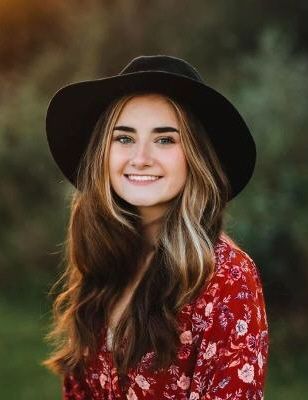
A couple months later, a co-worker from long ago died. We had worked together for about five years and were fairly good friends during that time. He was maybe a year older than me, and now he was gone. Cancer.
Very soon after that, I found out my direct supervisor died. He had a heart attack in the shower after working a nine-hour shift. I had talked to this man every day, several times a day, for the past two years until my leave of absence. He was 55.
I couldn’t shake the idea that that was such a horrible way to go. I wouldn’t want my last day on this earth to be spent working nine hours at my job.
A few months later, the daughter of one of my favorite managers died unexpectedly. I had worked with the mother off and on for over 20 years, and I had worked with the daughter for three or four. To this day, I still text the mother every so often to check on her. I can’t do it more often because it pains me to hear how much pain she is in.
More and more I am facing my own mortality. More and more I am questioning how I want to spend my final stages (stage?) of my life. I know I don’t want to die in the shower after working a stressful nine hour shift. Life is short, maybe shorter than we expect. We spend too much time worrying about the future when there may not be much of a future.
The other thing that dominates my thoughts lately is the meaning of life or, better yet, giving life meaning. I may return to working at some point. If I choose to continue living, making money is necessary to survive. But what I won’t do, or I will try my hardest to avoid, is working at a dead-end, non-fulfilling job.
My therapist has taught me about thinking about my values and, when the time is right, to find a job that is in line with those values. In other words, give my life meaning. Stop working for, or being part of, what she calls “the machine.” I think of Jack Black when he says in the movie School of Rock, “Stick it to The Man.” My thought is not as aggressive as sticking it to The Man, but I do prefer not to work for The Man. I don’t want to work to line someone else's sleezy pockets, especially when I get no appreciation for it. I want to work to make a difference. It doesn’t have to be a huge difference, and it doesn’t have to affect millions of people. I don't need to be Mother Teresa.
That is why it strikes close to home when I hear of people like Tim Wakefield dying so young, and so quickly. And that is what got me thinking about all of this. Wakefield was well-respected in the Boston area, and beyond, for his work in the community and with The Jimmy Fund. He made a difference, and that is what we should all strive to do. I have discovered that with every death, there is a lesson to be learned. There can be positive to be extracted from every negative event. It may be difficult, especially in the case of losing a parent to a devastating disease or a best friend to a sudden accident, but there is something to be learned.

